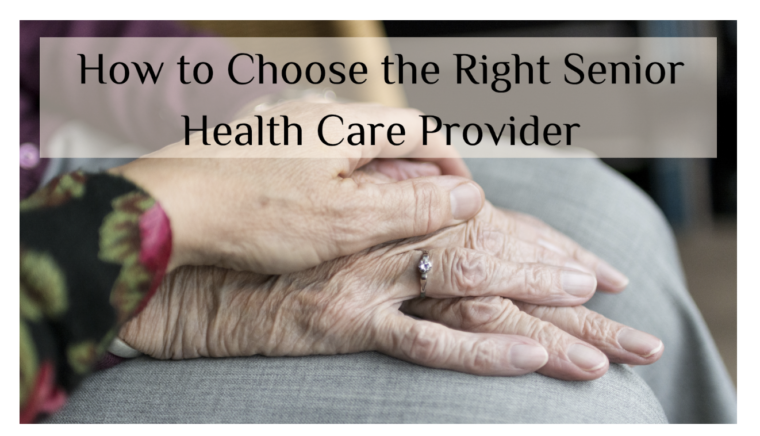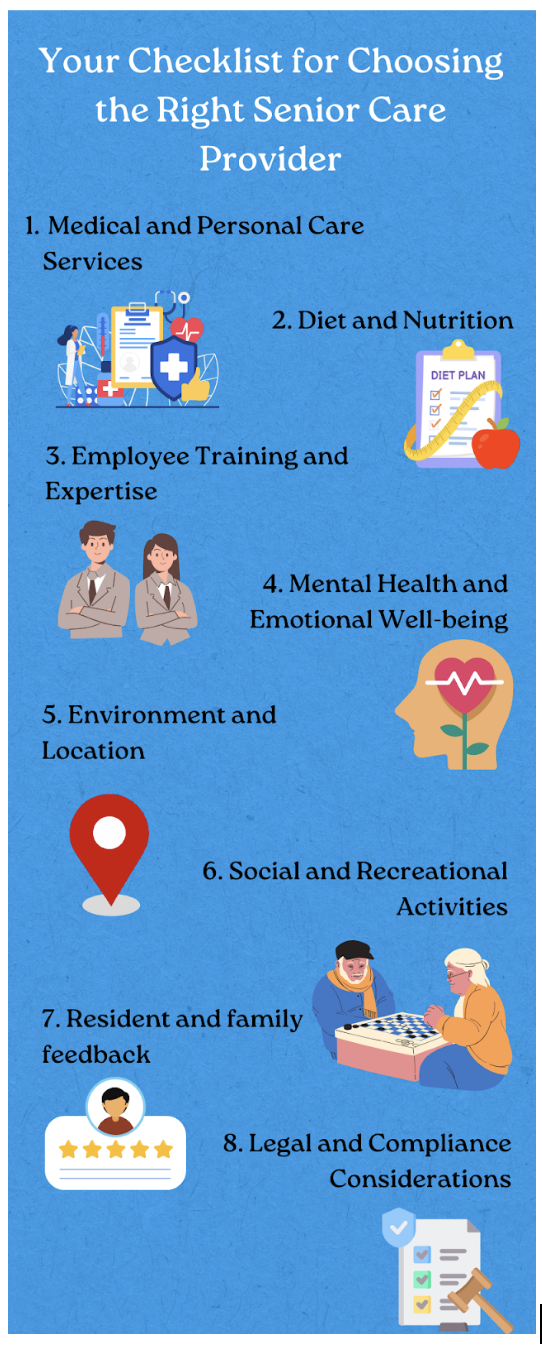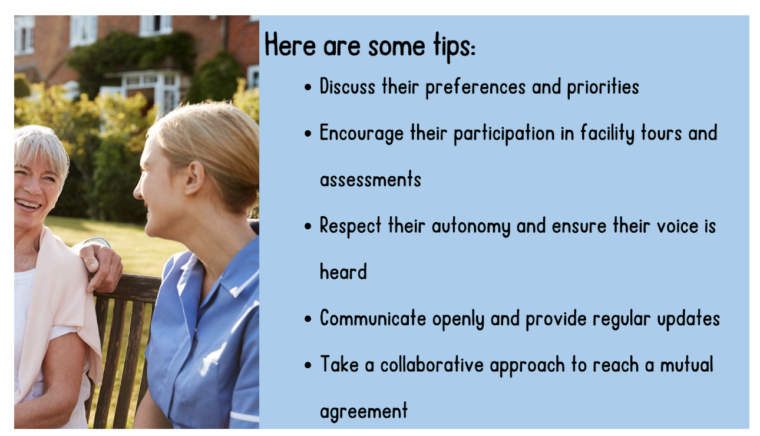How to Choose the Right Senior Health Care Provider

As our loved ones grow older, finding the right senior health care solution becomes a critical decision. Whether it’s in-home care, assisted living, nursing homes, or specialized facilities, the options can feel overwhelming.
However, armed with the right information and an effective evaluation process, you can confidently select the senior care provider that best suits your loved one’s needs.
Understand the Types of Senior Health Care Services
The first step is to familiarize yourself with the different senior care options available. Each type of service caters to varying levels of need and personal preferences.
| Type of Senior Care | Description |
| In-Home Care | Personalized care and support while remaining in the comfort of their own home, including assistance with daily tasks, medication management, and companionship. |
| Assisted Living Facilities | Communities that provide a middle ground between independent living and full-time nursing care, offering help with daily activities, access to on-site medical care, and social engagement. |
| Nursing Homes | Offer the highest level of medical care and support for seniors with complex health conditions, employing licensed nurses and providing around-the-clock supervision and skilled nursing services. |
| Specialized Care Facilities | Facilities that specialize in addressing specific needs, such as Alzheimer’s, dementia, or rehabilitation, with tailored programs and trained staff. |
Understanding the different types of senior care options allows for a more thorough evaluation, helping you determine the best fit for your loved one’s needs and preferences.
Key Factors to Consider When Choosing Senior Care
Once you understand the different senior care options, it’s time to dive deeper into the essential factors that will guide your decision.
Licensing and Accreditation
Ensuring the senior care provider is properly licensed and accredited is crucial. Look for facilities that meet state and federal regulations, as well as those accredited by organizations like the Joint Commission or the Commission on Accreditation of Rehabilitation Facilities (CARF).
Staff Qualifications and Training
The quality of care your loved one receives is directly tied to the expertise and dedication of the staff. Inquire about the credentials and ongoing training of the caregivers, nurses, and administrators. An optimal staff-to-resident ratio is also an important consideration.
Nutritionist and Dietary Considerations
Ensure the senior care provider has a qualified nutritionist on staff to develop personalized, low fodmap diet meal delivery for residents with specific dietary needs or restrictions. The ability to accommodate specialized diets can greatly impact the overall well-being of your loved one.
Mental Health Support
Caring for the emotional and psychological well-being of seniors is just as important as their physical care. Look for providers that offer mental health services, counseling, and activities to promote social engagement and combat loneliness.
Location and Accessibility
The location of the senior care facility can impact the overall quality of life for your loved one. Consider factors like proximity to family, access to medical services, and the availability of community resources and activities.
Health and Safety Protocols
Prioritize senior care providers that maintain rigorous health and safety standards. This includes emergency preparedness, infection control measures, medication management, and overall cleanliness and maintenance of the facility.
Resident and Family Feedback
Hearing firsthand accounts from current and past residents, as well as their families, can provide valuable insights into the care provider’s strengths and areas for improvement. Carefully review online reviews and feedback to gauge the facility’s reputation.
Comprehensive Checklist for Evaluating Senior Care Providers

To help you thoroughly assess potential senior care options, use this comprehensive checklist as a guide:
Medical and Personal Care Services
- Level of medical care available, including on-site medical staff, medication management, and personal care support
- Personalized care plans tailored to individual health needs and preferences
Diet and Nutrition
- Availability of dietitian-approved meal plans
- Ability to accommodate specific dietary needs and preferences, such as diabetic, low-sodium, or vegetarian options
Employee Training and Expertise
- Verification of employee qualifications, ongoing training programs, and staff turnover rates
- Specialized training in dealing with dementia, mobility issues, and end-of-life care
Mental Health and Emotional Well-being
- Programs and therapies offered for mental health support
- Activities and resources to combat loneliness and promote social interaction
Environment and Location
- Cleanliness of the facility and maintenance of living spaces
- Proximity to hospitals, clinics, and emergency services
- Accessibility features for seniors with limited mobility
Social and Recreational Activities
- Range and frequency of social events, outings, and in-house activities
- Facilities for hobbies, exercise, and leisure
- Feedback and Reviews from Residents and Families
- Methods for gathering and addressing feedback
- Reviews from current and past residents and their families regarding the care and environment
Legal and Compliance Considerations
- Understanding of residents’ rights under state and federal law
- Provider’s adherence to ethical standards and legal obligations
- Process for filing complaints and the facility’s responsiveness to issues raised
By thoroughly evaluating each of these key aspects, you can make an informed decision that ensures your loved one receives the best possible care.
Comparison of Senior Care Options
To further assist you in selecting the right senior care provider, consider the following comparison table:
| Feature | In-Home Care | Assisted Living | Nursing Home |
| Level of Care | Assistance with daily tasks, medication management, and companionship | Help with daily activities, access to on-site medical care, and social engagement | Comprehensive medical care, around-the-clock supervision, and skilled nursing services |
| Residential Setting | Remains in their own home | Shared or private residential units within a community | Shared rooms or private suites within the facility |
| Staff Qualifications | Trained caregivers, with potential for nursing support | Licensed nurses, certified nursing assistants, and other trained staff | Registered nurses, licensed practical nurses, and certified nursing assistants |
| Typical Resident Profile | Seniors who can live independently with some assistance | Seniors who need help with daily tasks but do not require extensive medical care | Seniors with complex health conditions or disabilities that require 24/7 skilled nursing |
| Average Cost (national median) | $4,957 per month | $4,500 per month | $7,756 per month |
This comparison table should help you weigh the pros and cons of each senior care option based on your loved one’s specific needs and preferences.
Involving the Senior in the Decision-Making
When choosing a senior care provider, it’s important to involve the senior in the decision-making process whenever possible.

By involving your loved one, you can ensure the chosen provider aligns with their personal preferences and supports their autonomy, dignity, and overall well-being.
What to Look for During Facility Visits
In-person visits are crucial when evaluating potential senior care providers. Here’s what to look for during your tours:
Cleanliness and Maintenance
Observe the overall cleanliness and upkeep of the facility, including common areas, resident rooms, and bathrooms. Look for any signs of odors, dirt, or disrepair. Pay attention to whether the facility appears well-maintained and cared for.
Staff Interaction with Residents
Pay attention to how the staff members interact with the residents. Are they attentive, patient, and engaged, or do they seem rushed and impersonal? Look for genuine connections and a caring demeanor.
Resident Engagement and Socialization
Look for signs that residents are active and engaged, whether through organized activities, outings, or casual interactions with each other and the staff. Observe the level of community and social involvement.
Safety and Accessibility Features
Ensure the facility has appropriate safety measures, such as emergency call systems, secure exits, and accessibility features for seniors with mobility challenges. Check that the environment is designed with the needs of seniors in mind.
Mealtime Experience
Observe the dining areas and sample the food quality. Inquire about the variety of meal options and the facility’s ability to accommodate dietary needs. Pay attention to the overall dining experience and ambiance.
Overall Atmosphere and Ambiance
Consider the overall atmosphere and feel of the facility. Does it feel welcoming, comfortable, and tailored to the needs of seniors? Observe how the facility caters to the physical, emotional, and social well-being of the residents.
By conducting thorough in-person visits and using this checklist, you can gain a deeper understanding of the senior care provider’s capabilities and commitment to resident well-being.
FAQs
- What are the most crucial factors to consider when comparing different health care providers for seniors?
The most crucial factors include personalized care plans, staff qualifications and training, the provider’s ability to meet the evolving needs of the senior, and the overall quality and safety of the facility.
- How can I ensure the senior health care provider is trustworthy and reliable?
To ensure trustworthiness, verify the provider’s licenses, accreditation status, and check records with state health departments or better business bureaus. Thoroughly review online reviews and feedback from current and past residents and their families.
- What should I do if my senior family member has special medical needs?
If your loved one has special medical needs, such as dementia or mobility issues, seek facilities with specialized care services, trained medical staff on site, and tailored programs to address those specific conditions.
Conclusion
Choosing the right senior care provider is crucial. Evaluate key factors, conduct thorough research, and prioritize your loved one’s well-being to make an informed decision that supports their independence and quality of life.
